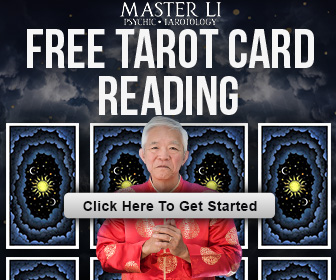The practice of tarot reading has long been a subject of controversy, sparking intense debates about its morality and spirituality. While some view it as a harmless form of entertainment, others consider it a gateway to the unknown that can have profound spiritual implications.
At the heart of the tarot reading debate lies the question of its moral standing. Those interested in exploring this topic further can find various perspectives on tarot readings and their implications. The discussion around tarot reading morality is complex, involving cultural, religious, and personal belief systems.
As we delve into this multifaceted issue, it becomes clear that understanding the nuances of tarot reading is crucial. This examination aims to shed light on the various viewpoints surrounding the practice, providing a comprehensive look at the ongoing debate.
Table of Contents
The Origins and Evolution of Tarot Cards
Tarot cards have evolved significantly since their inception, transforming from simple playing cards to complex divination tools. The history of tarot cards is a fascinating journey that spans centuries, influenced by various cultural and symbolic traditions.
Historical Development of Tarot
The development of tarot cards is a story of gradual evolution, marked by significant milestones. Understanding their history requires a look at their early origins and the evolution of their symbolism.
Early Playing Card Origins
Tarot cards originated from playing cards used in Europe during the 15th century. The earliest recorded use of tarot cards was in Italy, where they were used for playing games. Over time, these cards evolved to include various symbolic images and themes.
Symbolism and Imagery Evolution
The symbolism and imagery on tarot cards have undergone significant changes, influenced by different cultures and esoteric traditions. The tarot card evolution is evident in the diverse and complex imagery used in modern decks, which draw on sources such as alchemy, astrology, and mysticism.
Transition from Card Games to Divination
The shift from using tarot cards for games to using them for divination purposes marked a significant turning point in their history. This transition was influenced by various factors, including the rise of esoteric movements in the 18th century. For those interested in exploring tarot divination further, there are numerous resources available, including guides on questions to ask the tarot cards, which can enhance one’s understanding and practice.
Modern Interpretations and Uses
Today, tarot cards are used worldwide for a variety of purposes, from divination and self-reflection to spiritual growth. The tarot card origins may be rooted in playing cards, but their modern interpretations are diverse and multifaceted, reflecting the complex and evolving nature of human spirituality and culture.
Is Tarot Reading a Sin? Religious Perspectives
The question of whether tarot reading is a sin has become a pressing concern for adherents of various religious traditions. As tarot reading gains popularity, many faith communities are reevaluating their stance on this practice.
Christian Viewpoints on Divination
Christian perspectives on tarot reading are largely influenced by biblical teachings on divination. The Bible contains several references that prohibit divination and related practices.
Biblical References and Prohibitions
The book of Deuteronomy (18:10-12) explicitly forbids divination, augury, and sorcery, categorizing them as detestable practices. Similarly, in Leviticus (19:26 and 31), the Israelites are warned against turning to mediums or seeking guidance from spirits.
Catholic vs. Protestant Interpretations
Within Christianity, both Catholic and Protestant denominations have varying views on tarot reading. The Catholic Church generally views tarot reading as a form of divination that contradicts Christian teachings. Some Protestant denominations share this view, while others are more nuanced in their approach.
Other Religious Perspectives
Beyond Christianity, other religious traditions also have distinct views on tarot reading.
Jewish and Islamic Viewpoints
In Judaism, divination is generally discouraged, as seen in the Torah’s prohibitions. Islamic teachings also caution against divination, considering it a form of seeking knowledge from sources other than Allah.
Eastern Religious Approaches
Eastern religions, such as Buddhism and Hinduism, tend to view tarot reading through the lens of their own spiritual practices. Some practitioners see tarot as a tool for self-reflection and introspection, aligning it with their philosophical outlook.
Arguments Against Tarot from Faith Leaders
Faith leaders across various religions have expressed concerns about tarot reading. For instance, some Christian leaders argue that tarot reading is incompatible with Christian faith, citing biblical prohibitions on divination. To learn more about the implications of tarot reading, you can review our disclaimer.
| Religion | View on Tarot Reading | Basis of View |
|---|---|---|
| Christianity | Generally viewed as sinful | Biblical prohibitions on divination |
| Judaism | Discouraged | Torah’s prohibitions on divination |
| Islam | Cautioned against | Islamic teachings on seeking knowledge |
| Eastern Religions | Viewed as tool for self-reflection | Philosophical alignment with introspection |
Tarot as a Spiritual Practice
For numerous individuals, tarot reading serves as a spiritual compass, directing them through life’s complexities. This practice is not merely about predicting the future but is deeply rooted in personal growth, self-reflection, and spiritual exploration.
Psychological and Self-Reflection Approaches
Tarot reading is often utilized as a tool for psychological insight and self-reflection. It allows individuals to tap into their subconscious mind, exploring thoughts, feelings, and experiences that may not be immediately apparent.
Jungian Archetypes and Symbolism
The symbolism in tarot cards is closely related to Jungian archetypes, which are universal symbols and images that recur across cultures. These archetypes, as proposed by Carl Jung, represent various aspects of the human psyche, facilitating a deeper understanding of oneself.
Shadow Work and Personal Growth
Tarot reading can also be a means of engaging in shadow work, a concept introduced by Jung referring to the repressed or hidden aspects of one’s personality. By confronting and integrating these shadow elements, individuals can achieve greater self-awareness and personal growth.
Connection to Intuition and Higher Self
Many practitioners believe that tarot reading helps connect them with their intuition and higher self, enabling a more profound understanding of their life’s journey and spiritual path. This connection is thought to foster a sense of inner guidance and wisdom.
Tarot in New Age and Alternative Spirituality
Tarot reading has become an integral part of new age and alternative spirituality, often used in conjunction with other practices such as meditation, astrology, and energy healing.
Integration with Other Practices
The versatility of tarot allows it to be seamlessly integrated with various spiritual practices, enhancing its effectiveness as a tool for personal and spiritual development.
| Spiritual Practice | Integration with Tarot | Benefits |
|---|---|---|
| Meditation | Using tarot cards as a focus during meditation | Enhanced mindfulness and inner peace |
| Astrology | Combining tarot readings with astrological insights | Deeper understanding of celestial influences on personal life |
| Energy Healing | Incorporating tarot into energy healing sessions | Balancing and aligning one’s energy with spiritual intentions |
By embracing tarot as a spiritual practice, individuals can cultivate a more profound connection to their inner selves and the world around them. This holistic approach to spirituality can lead to greater self-awareness, personal growth, and a deeper understanding of one’s place in the universe.
Reconciling Faith and Tarot
Tarot reading and faith are not mutually exclusive; many find ways to integrate both into their spiritual practices. Practitioners often seek to balance their religious beliefs with the insights gained from tarot readings.
How Practitioners Balance Religious Beliefs
Many tarot practitioners come from religious backgrounds and find ways to reconcile their faith with tarot reading. They may view tarot as a tool for self-reflection and spiritual growth, rather than a replacement for their religious beliefs.
Secular and Psychological Approaches
Some practitioners adopt a secular or psychological approach to tarot reading, focusing on its therapeutic benefits and ignoring any spiritual or religious connotations. This approach allows them to use tarot as a tool for personal growth without conflicting with their religious beliefs.
Ethical Considerations in Tarot Practice
Ethical considerations are crucial in tarot practice. Practitioners must be aware of the potential for dependency or manipulation and take steps to avoid these pitfalls.
Responsible Reading Guidelines
To practice tarot responsibly, readers should provide clear guidelines to their clients, including the limitations of tarot readings and the importance of personal decision-making.
Avoiding Dependency and Manipulation
Practitioners should be mindful of their clients’ vulnerability and avoid creating dependency. They should empower clients to make their own decisions rather than relying solely on tarot readings.
| Ethical Consideration | Best Practice |
|---|---|
| Client Dependency | Empower clients to make their own decisions |
| Manipulation | Provide clear, unbiased readings |
| Confidentiality | Maintain client confidentiality |
Conclusion: Navigating Personal Beliefs About Tarot
Tarot reading is a complex and multifaceted practice that has been viewed differently across various cultures and belief systems. While some see it as a sinful or occult practice, others view it as a valuable tool for self-reflection and spiritual growth.
Research has shown that tarot readings are not necessarily predictive of future events but can be remarkably effective for personal insight and problem-solving. The placebo effect of believing in tarot readings can also lead to real behavioral changes. Brain imaging studies have found that divination practices like tarot activate areas of the brain associated with intuition and pattern recognition.
Ultimately, whether tarot reading is viewed as positive or negative depends on individual beliefs and values. By understanding the history, religious perspectives, and psychological benefits of tarot, readers can form their own informed opinions about its place in their lives. Navigating personal beliefs about tarot reading involves considering its potential benefits and drawbacks, and making choices that align with one’s own spiritual or personal growth goals.


